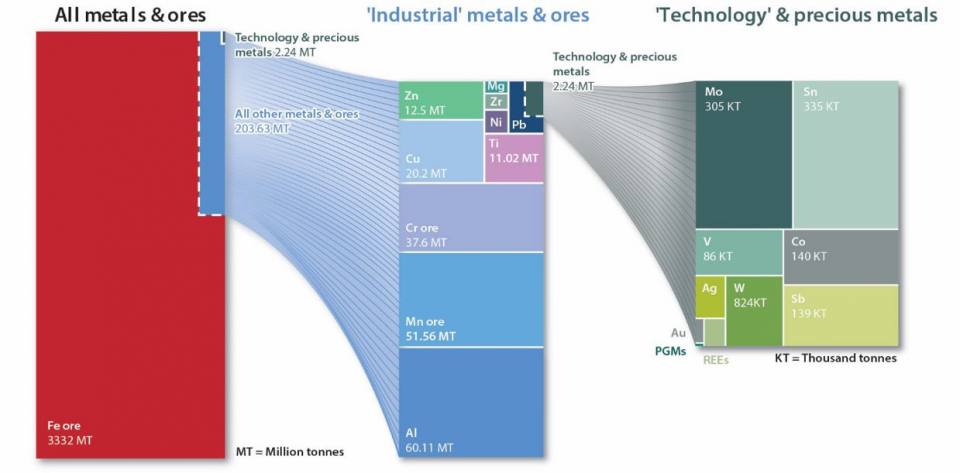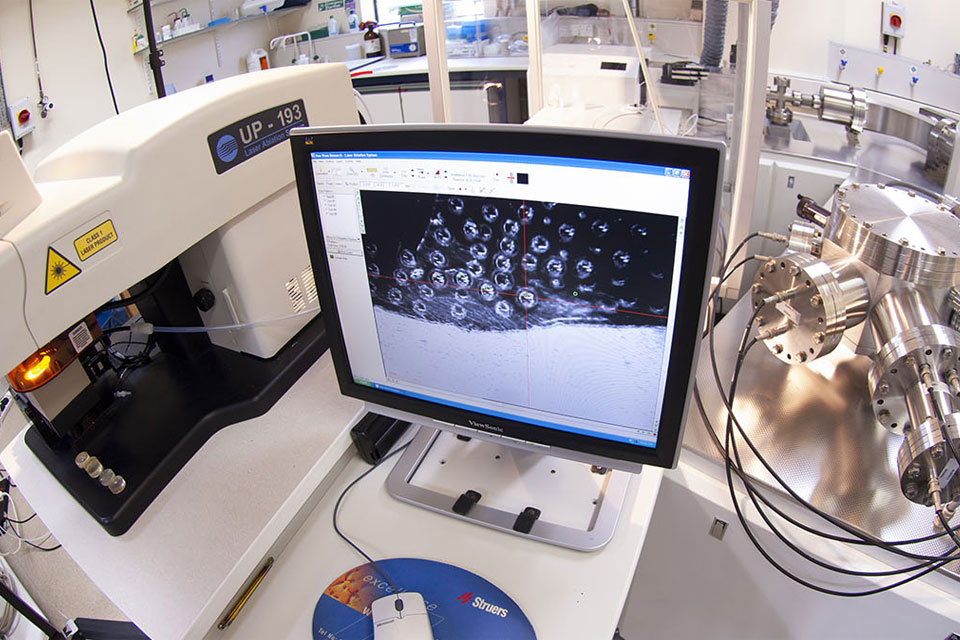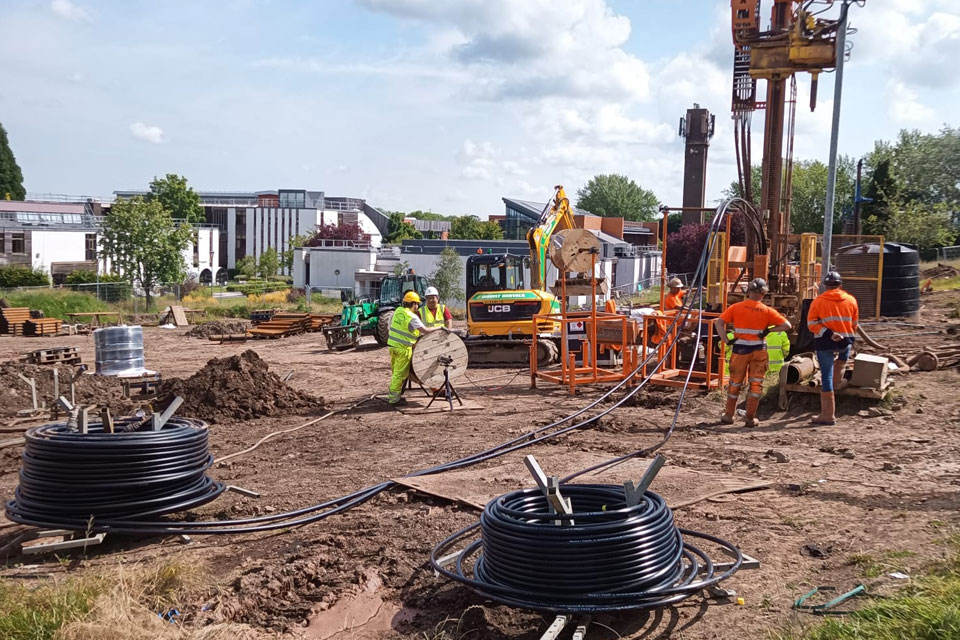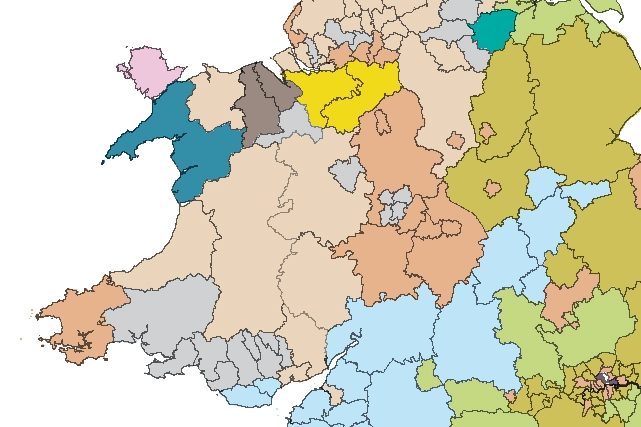BGS to play its part in circular economy centres to drive UK to sustainable future
The British Geological Survey (BGS) will be at the heart of two pioneering new research centres designed to help drive the UK towards a circular economy and a more sustainable future.
13/11/2020 By BGS Press
BGS expertise will contribute to the development of two new UKRI-funded Interdisciplinary Circular Economy Centres:
- Interdisciplinary Circular Economy Centre in Technology Metals
- Interdisciplinary Circular Economy Centre for Mineral-based Construction Materials
They are part of five new centres announced on 11 November as part of a £22.5 million Government investment to explore how closing the loop for materials in the textiles, construction, chemical and metal industries can deliver huge environmental benefits and boost the UK economy.
The UK Research and Innovation (UKRI) interdisciplinary circular economy centres will help the UK move towards a circular economy, which will provide significant benefits by:
- reducing waste
- lowering the environmental impact of production and consumption in the UK and abroad
- securing supply for critical raw materials
- creating opportunities for new UK industries

Global metal production 2017 data from BGS World Mineral Statistics Database.
The Interdisciplinary Circular Economy Centre in Technology Metals will be led by the University of Exeter and is designed to revolutionise how critical metals are extracted, used and reused in low-carbon and digital technologies across the UK.
As part of this centre, BGS will be responsible for the development of a Circular Economy National Virtual Data Observatory (NVO) to deliver stocks and flows data and information for a range of technology metals. It will form a key part of the centre’s work to explore ways to create a circular economy for the technology metals such as cobalt, rare earths and lithium, essential for low-carbon and digital technologies such as electric cars and wind turbines.
We are very excited to be given the opportunity to develop this National Virtual Data Observatory (NVO) in the UK, which will bridge the data gap about the whole cycle of technology metals.
The geoscience community has a wide range of tools, methods and skills that are transferable to the challenges of the circular economy.
Dr Evi Petavratzi, BGS Mineral Commodity Expert.
The centre aims to develop a new cycle, right from the first stages of extraction, to enable secure and environmentally-acceptable circulation of these materials within the UK economy.
It will bring together experts from the University of Exeter and the Camborne School of Mines, the Universities of Birmingham, Manchester, Leicester and BGS, as well as 40 partner companies and organisations.
The Interdisciplinary Circular Economy Centre for Mineral-based Construction Materials will be led by University College London and aims to develop systems for more efficient use and recovery of mineral resources in the UK’s construction sector.
Relative topics
Related news

Call for new members and Chair to join the NERC facilities steering committees
25/02/2026
New members are needed to join the committees over the next four years.

Your views wanted – developing a ‘Geothermal energy subsurface data portfolio’
24/02/2026
BGS is aiming to support the growth of the sector by providing the best-available, location-specific geothermal and ground source heat information as an accessible product or service.

Map of BGS BritPits showing the distribution of worked mineral commodities across the country
18/02/2026
BGS’s data scientists have generated a summary map of the most commonly extracted mineral commodities by local authority area, demonstrating the diverse nature of British mineral resources.

Funding awarded to map the stocks and flows of technology metals in everyday electronic devices
12/02/2026
A new BGS project has been awarded Circular Electricals funding from Material Focus to investigate the use of technology metals in everyday electrical items.

New UK/Chile partnership prioritises sustainable practices around critical raw materials
09/02/2026
BGS and Chile’s Servicio Nacional de Geología y Minería have signed a bilateral scientific partnership to support research into critical raw materials and sustainable practices.

Extensive freshened water confirmed beneath the ocean floor off the coast of New England for the first time
09/02/2026
BGS is part of the international team that has discovered the first detailed evidence of long-suspected, hidden, freshwater aquifers.

Funding secured to help mitigate ground risk in UK construction sector
05/02/2026
The BGS Common Ground project has been awarded new funding to help unlock the value of ground investigation data.

Can sandstones under the North Sea unlock the UK’s carbon storage potential?
02/02/2026
For the UK to reach its ambitious target of storing 170 million tonnes of carbon dioxide per year by 2050, it will need to look beyond the current well-studied geographical areas.

Quaternary UK offshore data digitised for the first time
21/01/2026
The offshore wind industry will be boosted by the digitisation of a dataset showing the Quaternary geology at the seabed and the UK’s shallow subsurface.

Suite of ten new soil reference materials released
02/01/2026
BGS has a longstanding track record of producing high-quality reference materials and has released ten new soil reference materials.

Perth and Kinross tops the UK’s earthquake activity charts for 2025
29/12/2025
Seismologists at BGS have published data on the number of seismic events over the past 12 months with over 300 earthquakes recorded.

BGS awarded funding to support Malaysia’s climate resilience plan
17/12/2025
The project, funded by the Foreign, Commonwealth & Development Office, will focus on minimising economic and social impacts from rainfall-induced landslides.




